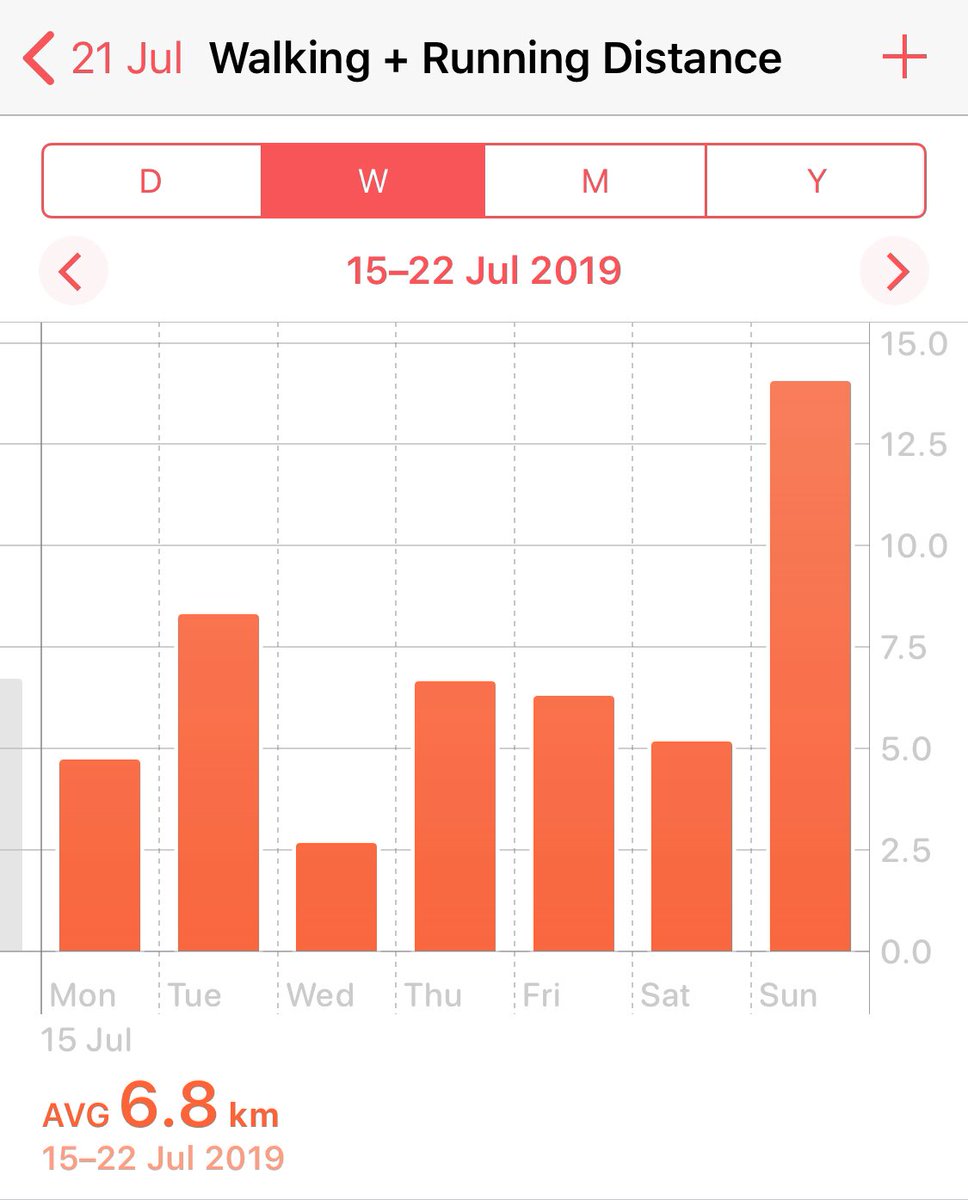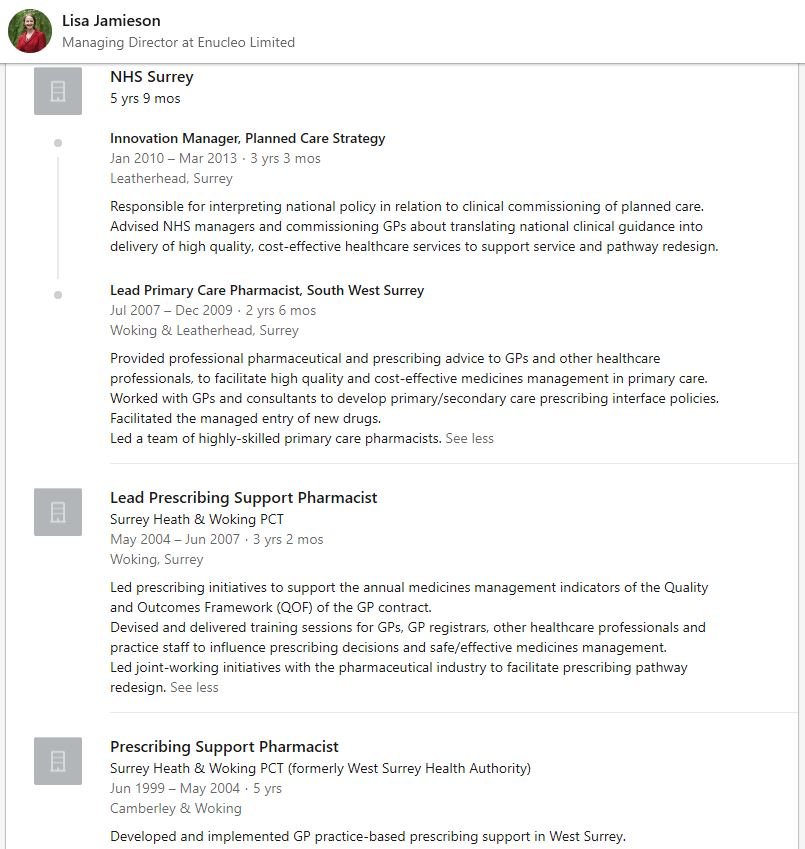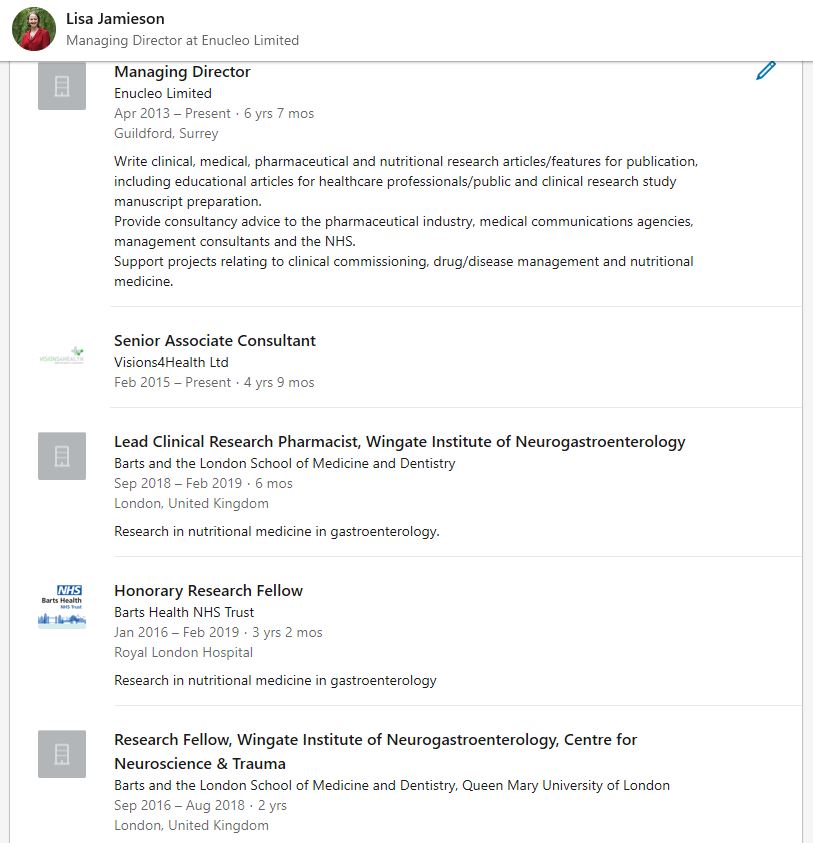I regularly had musculoskeletal pain, in different muscles/joints. I would get tired easily, had weak muscles, and was often fatigued
After nutritional changes:
No longer have muscle/joint pain, have more energy, and I’m fitter than I’ve ever been /3
Unpredictable daily gastrointestinal symptoms, which could include a mixture of IBS, pain and indigestion.
After nutritional changes:
I have ‘normal’ gut function - symptoms only triggered if I deviate from what I now know can keep them at bay /5
Regular daily symptoms associated with autonomic dysfunction, especially reactive hypoglycaemia - feeling nauseous, sweaty, shaky, brain fog & lightheaded when hungry
After nutritional changes:
Only a handful of episodes of this in the last 6 years /6
Autonomic dysfunction included feeling dizzy or lightheaded when going from lying to standing very quickly e.g. getting out of bed. Skin flushed and needed to lie down after a hot shower
After nutritional changes:
Don’t experience these any more /7
Since age ~15y, during winter or spring (most years but not every), I developed seasonal asthma (sometimes a chest infection) requiring reliever/preventer inhalers (often antibiotics)
After nutritional changes:
Haven’t used inhalers or ABs for 6 yrs /8
History of eczema, irritant contact dermatitis, broken skin & prone to skin infections - needed intermittent steroid creams, antihistamines & occasional antibiotics
After nutritional changes:
No steroid creams for 6 yrs. Rarely even need emollients /9
Regularly had dry, itchy skin, rashes and severe reactions to insect bites, and reactions to sun. History of dermatographism
After nutritional changes:
One solitary dose of an antihistamine for prickly heat on holiday in 2016 /10
Poor wound healing, easy bruising, petechiae, even from carrying shoulder bags or minor bumps
After nutritional changes:
Skin heals much faster, don’t bruise as often, not as severe /11
A history of headaches, and at the time of starting my nutritional medicine experiment, living with daily symptoms of a spontaneous spinal CSF leak
After nutritional changes:
Recovered from spinal CSF leak and rebound high pressure headaches /12
Experienced migraines in my teens and twenties and worked my way through a variety of different prescription and over-the-counter (OTC) medicines
After nutritional changes:
Occasional mild migraine-like headaches, managed with OTC pain relief /13
Visited 2 different GPs at practice relatively regularly for a plethora of reasons - both know me well
After nutritional changes:
Been to see GP twice in 6 yrs (2 GPs)
1st said: “You know your body well, don’t you?”
2nd said: “Long time, no see!” /14
I completed research for my nutritional medicine MSc on nutrition in hEDS. /15
Most doctors haven’t studied nutrition and would need to obtain ethical approval to test hypotheses or conduct research on patients with hEDS /19
Change is needed.
Thanks for reading! /end





